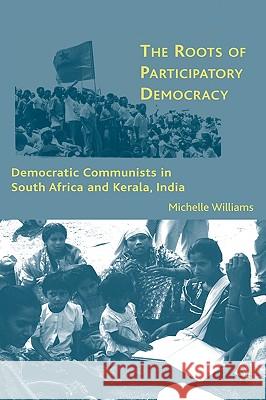The Roots of Participatory Democracy: Democratic Communists in South Africa and Kerala, India » książka
The Roots of Participatory Democracy: Democratic Communists in South Africa and Kerala, India
ISBN-13: 9780230606401 / Angielski / Twarda / 2008 / 215 str.
The Roots of Participatory Democracy: Democratic Communists in South Africa and Kerala, India
ISBN-13: 9780230606401 / Angielski / Twarda / 2008 / 215 str.
(netto: 191,66 VAT: 5%)
Najniższa cena z 30 dni: 192,74
ok. 16-18 dni roboczych.
Darmowa dostawa!
A group of women sit under a tree deliberating on what to do about the stagnant water near their homes. Five thousand people march and sing struggle songs as they launch a campaign to transform the banking industry. These are the types of activities usually associated with global social movements in the twenty-first century. Yet surprisingly, behind both these events are communist parties engaging in novel forms of development. The Roots of Participatory Democracy compares the communist parties of Kerala, India and South Africa, revealing the vibrant and unexpected role that modern-day communist parties are sometimes playing in participatory democratic, egalitarian politics. Using an original conceptual framework, Williams shows that political parties have tremendous potential for coordinating the diverse interests in civil society and for forging a coherent political project. The book shows that in the 1990s communist parties in both Kerala and South Africa began to practice a new "generative" politics, in which they engage their ideological foundations as well as their practices of translating these aspirations into reality.











